Music
Why Yemi Alade Tagged her Latest Album “REBEL QUEEN”
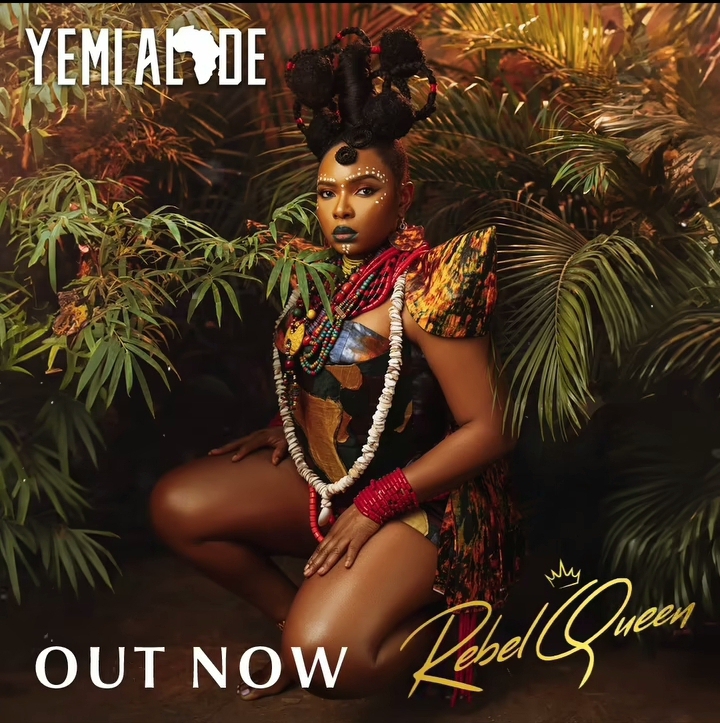
Yemi Alade’s latest album, “Rebel“, is a testament to her unwavering commitment to being true to herself. In a world where conformity is often celebrated, Yemi Alade dares to be different. She embarks on a journey of self-discovery, embracing the unconventional and the uncharted path of music.
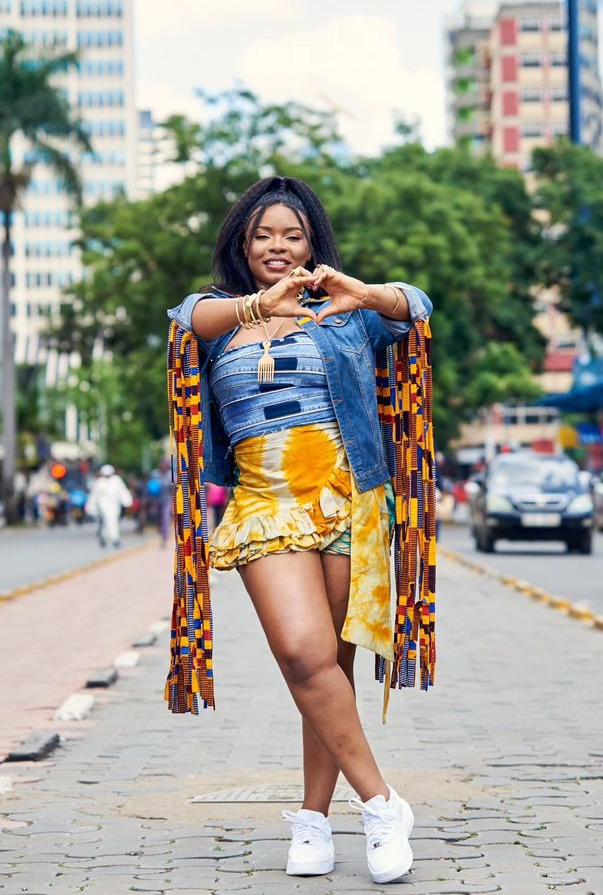
As she reveals on Instagram, “to be a REBEL is to travel paths that have less been traveled.” For Yemi Alade, this means venturing into unexplored sounds and styles, fearlessly pushing the boundaries of her art. “Rebel” is a culmination of her musical explorations, a fusion of genres and influences that have captivated her for years.
The album’s inspiration is deeply personal, born out of Yemi Alade’s desire to stay authentic in a world where popular opinion often dictates the norm.
She confesses, “To REBEL is to continuously be true to oneself even when one’s personal choices are not regarded as popular opinion.” This philosophy is the heartbeat of “Rebel”, an album that proudly wears its individuality like a badge of honour.
As her 10th body of work, “Rebel” marks a milestone in Yemi Alade’s illustrious career. It’s a reflection of her growth, her courage, and her unwavering dedication to her craft.
Here’s the tracklist for Yemi Alade’s “Rebel” album:
1. Karibu
2. Tomorrow
3. Ki lo wa wa
4. Chairman
5. Ije Love
6. I’m Sorry
7. Happy Day
8. Bop
9. Big connection
10. African Woman
11. Peace and love
12. Medaase
13. Big vibes
14. Carry me
15. Lipeka
16. Baddie Remix
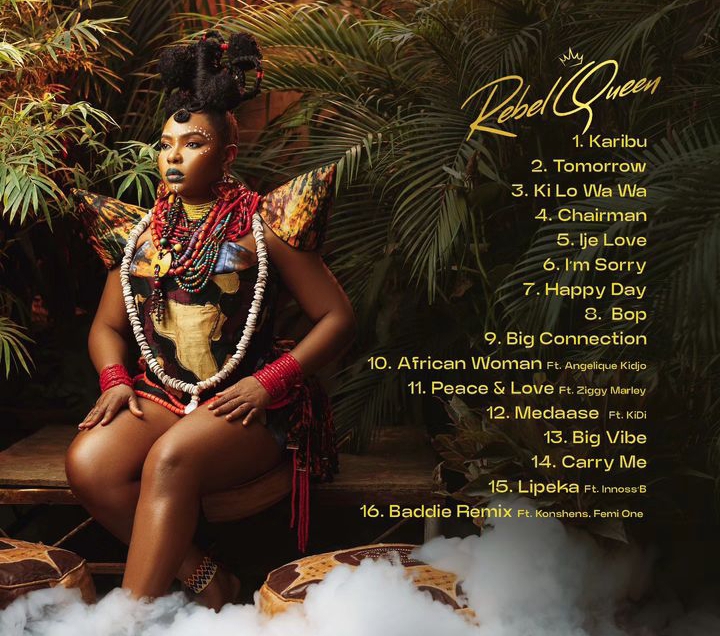
Join Yemi Alade on her rebellious journey, as she dares to be different and inspires us to do the same. Listen to REBEL and inspire authenticity.
Binge on Xclusivstars for more interesting and entertaining content.
Music
Nigeria’s Streaming Giants: Asake, Wizkid, Seyi Vibez, Burna Boy & Davido Lead Spotify Charts

Nigeria’s strong performance on Spotify reflects growing influence in digital music streaming. Over the past year, five names have ranked among the most-streamed Nigerian artists driving local and international listening patterns: Asake, Wizkid, Seyi Vibez, Burna Boy and Davido.
Spotify’s year-end charts and regional performance data show a consistent pattern: these artists appear on global charts within Afrobeats and mainstream music categories.
Spotify has highlighted Nigeria as one of its fastest-growing markets in Sub-Saharan Africa. Streams of Nigerian music continue to rise domestically and internationally, with Afrobeats remaining the most-streamed genre internationally.
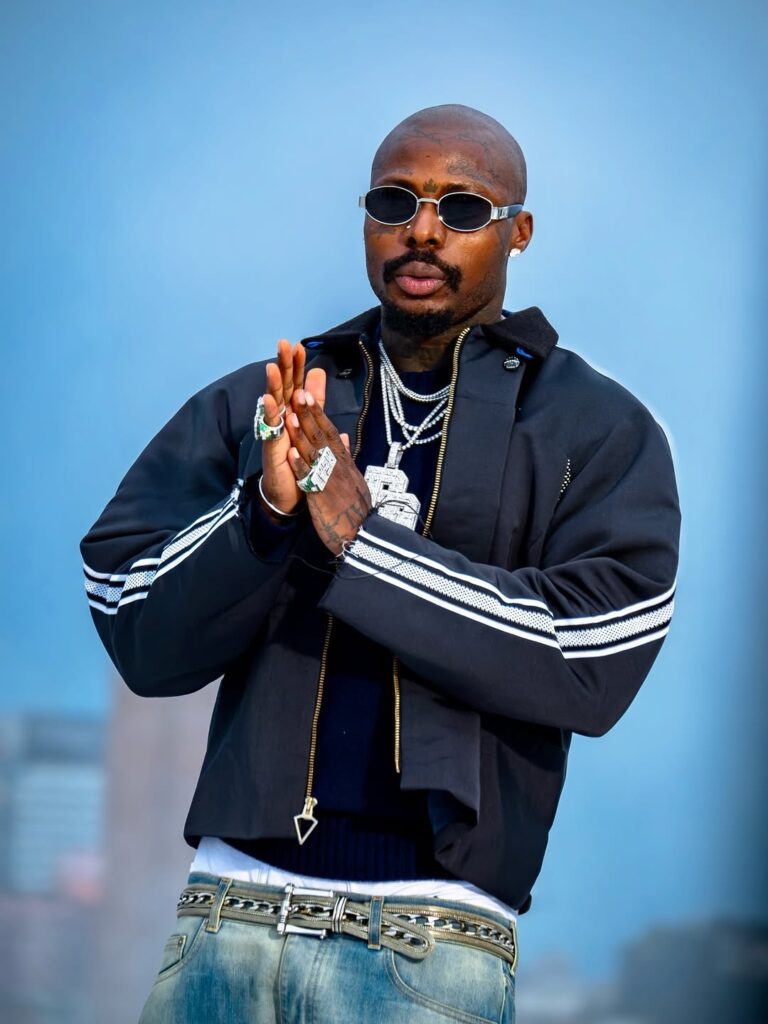
Asake – Instagram
Among the standout performers, Asake’s catalog maintains frequent placement on major playlists, supported by projects that combine Fuji-inspired rhythms with street-pop structures that encourage repeat streams. His steady release pattern and high-energy projects have resulted in strong streaming numbers.
Wizkid, with an established international audience, continues to benefit from a wide listener base outside Nigeria. Cross-market collaborations and strategic single releases support his global reach. Spotify data across multiple periods shows that his monthly listener figures rise around global festival seasons and international tour periods.
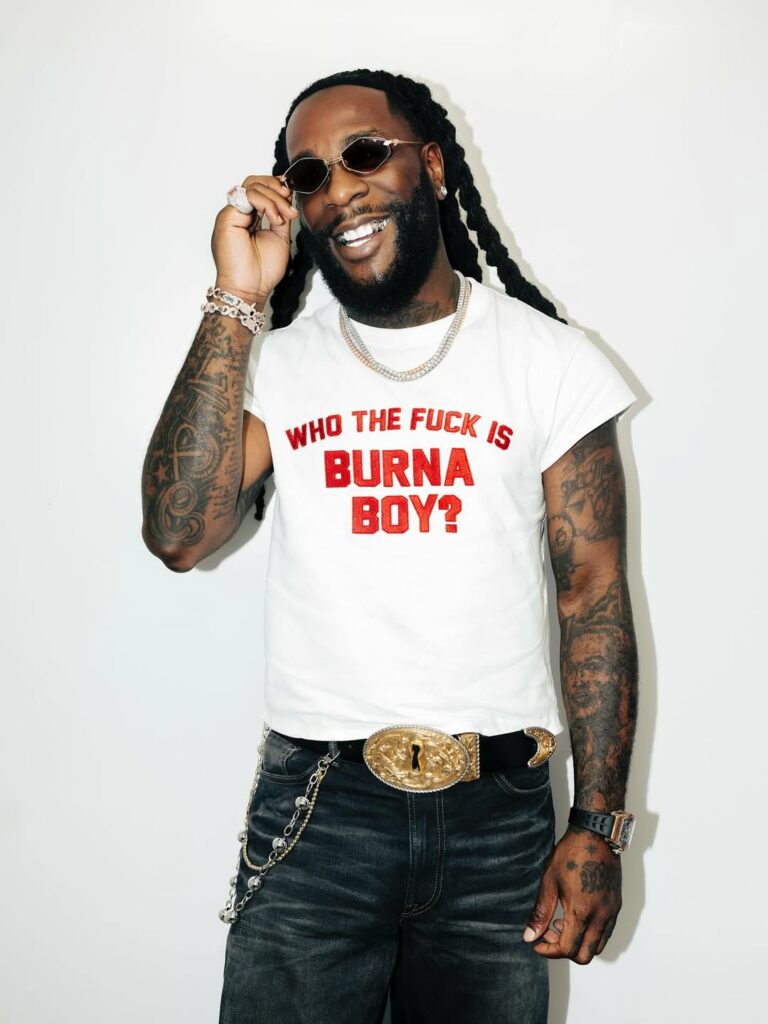
Burna Boy – Instagram
Burna Boy follows a similar international strategy but focuses more on album-driven releases. His projects tend to generate sustained streaming activity rather than short-term spikes, helping keep older records active across territories long after release.
Davido’s streaming strength lies in high first-week streaming performance and accessibility. His records are built around strong choruses and collaborative features that broaden audience reach. Each release cycle has been associated with increased streaming activity across African markets and diaspora communities in the United Kingdom and North America.

Seyi Vibes – Instagram
Seyi Vibez represents a locally driven streaming model. His rise has been supported largely by core Nigerian audiences. While some artists prioritise crossover markets, his numbers show strong domestic streaming figures. His catalog performs well in urban centres, demonstrating that local streaming support can remain commercially competitive.
Spotify’s editorial playlists have contributed to increased visibility of Nigerian acts. Major Afrobeats playlists frequently feature these five artists, and their music also appears on global mood, workout and pop playlists, extending reach beyond genre-specific audiences.
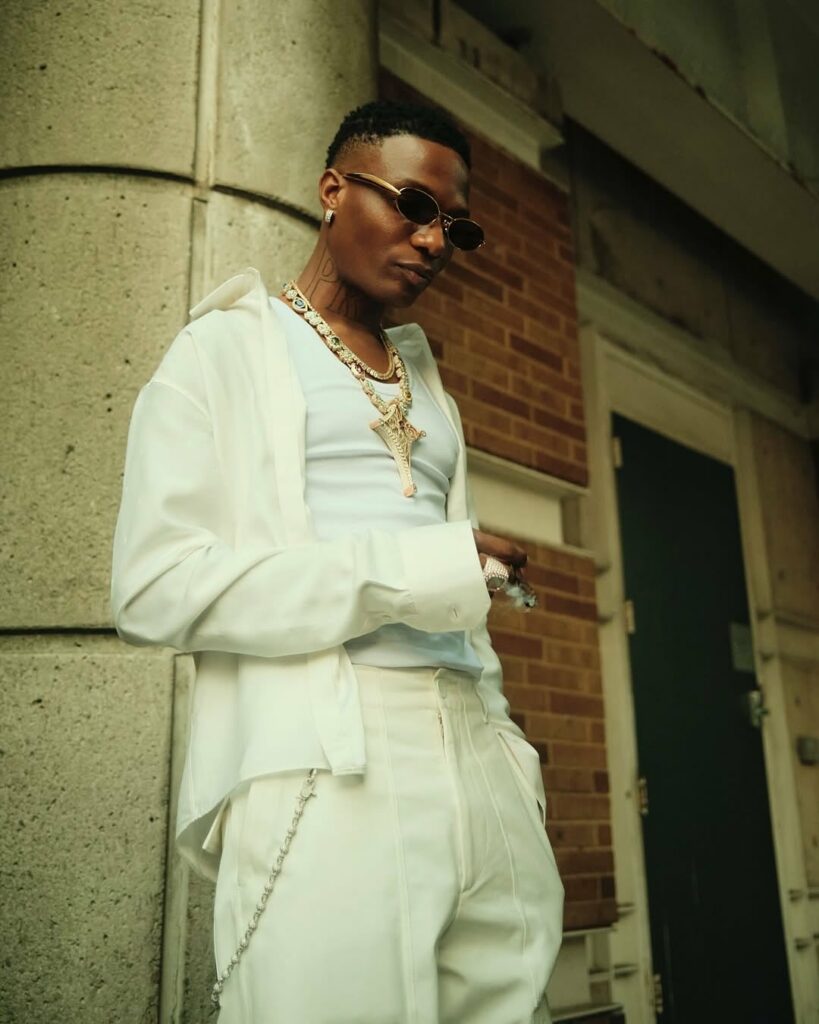
Wizkid – Instagram
Release timing also supports algorithmic visibility. Singles are often released months before albums, allowing streaming traction to build before full projects arrive.
International streams remain important. Cities such as London, Toronto and New York consistently rank among the top streaming locations for Nigerian artists. Diaspora listeners provide additional support for global chart placements.
Burna Boy and Wizkid receive strong support from diaspora audiences, while Davido’s collaborations help maintain cross-border visibility. Asake’s international touring has also been followed by noticeable streaming increases after live performances.
Catalog depth remains a defining factor. The artists’ success is not dependent on a single hit record. Their catalogs extend beyond breakout singles, with older tracks continuing to generate daily streams. This pattern is particularly visible in the streaming performance of Wizkid and Burna Boy.
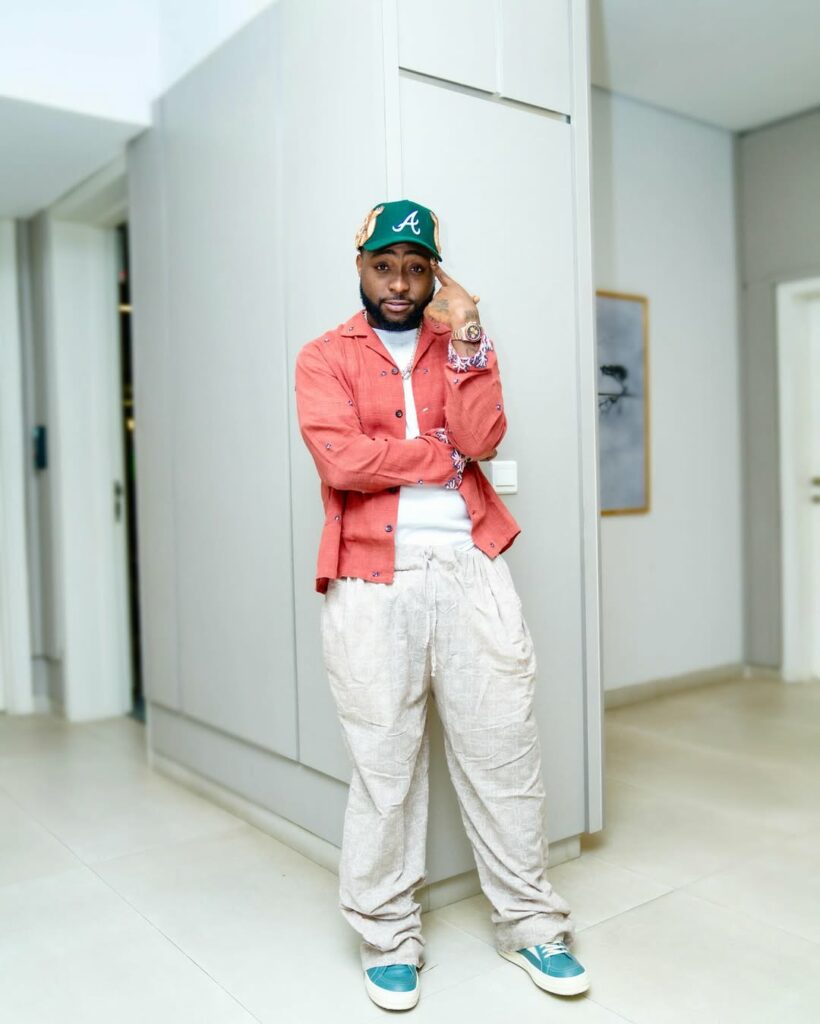
Davido – Instagram
Asake and Seyi Vibez, though newer on the mainstream international stage, have built compact catalogs that are highly replayable. Regular releases help sustain their monthly listener figures.
The conversation around Nigerian streaming growth often focuses on cultural influence. Spotify’s data instead reflects strategic release patterns, audience segmentation and market expansion. These five artists represent different commercial models: international crossover reach, strong local loyalty, catalog longevity and consistent release cycles.
Nigeria’s streaming growth is not dependent on one musical style or marketing approach. The market remains diversified. As Spotify expands further across African regions, current data suggests these artists are contributing significantly to streaming growth.
Music
Gunna and Wizkid Heat Up Screens in “Forever Be Mine” Video
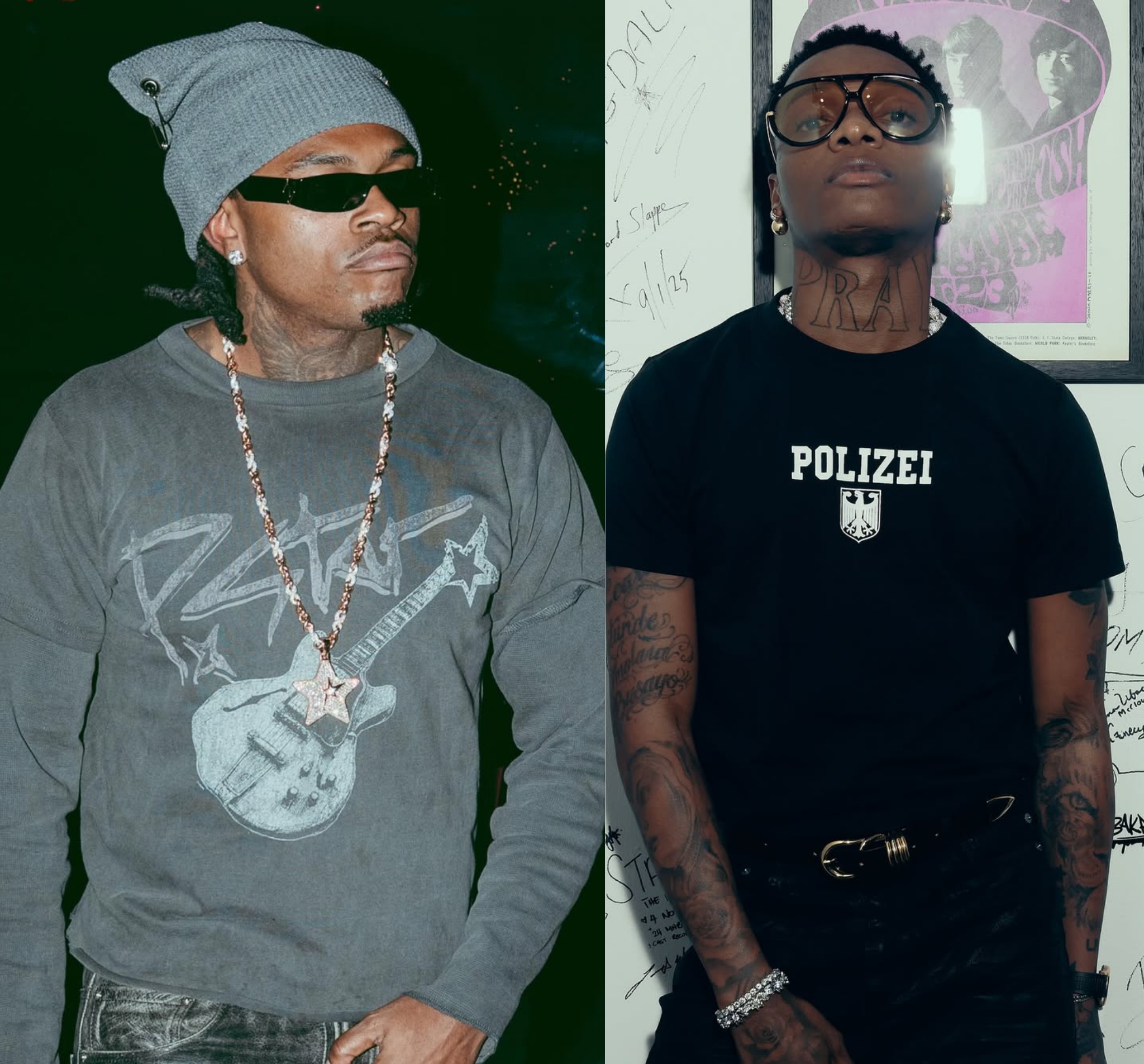
The official video for “Forever Be Mine” sees Gunna and Wizkid bring their collaboration to screen months after the song first appeared on Gunna’s sixth studio album, The Last Wun, released in August 2025. The project featured several melodic tracks and international collaborations, with “Forever Be Mine” standing out for its cross-continental pairing.
The video does not follow a storyline. Gunna appears in polished indoor settings, often surrounded by women, aligning with the song’s romantic theme. Wizkid’s scenes shift to relaxed outdoor settings, including beachside performance shots that match his laid-back delivery. Both artists remain within their familiar performance styles, and the scenes are built around mood.
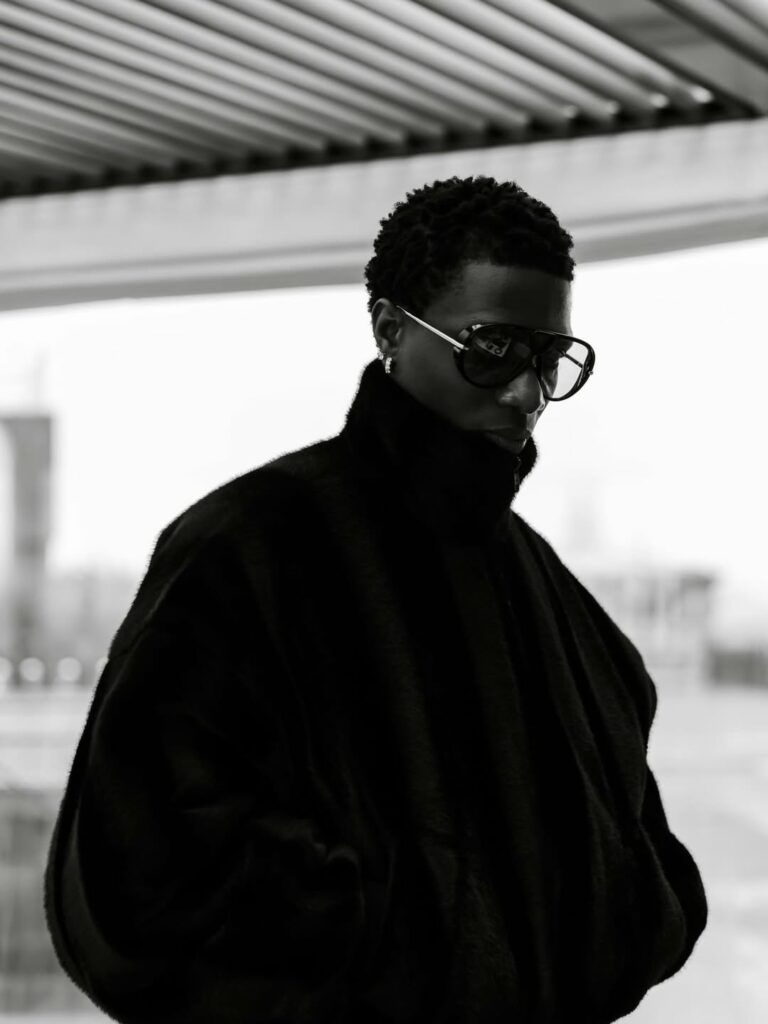
Wizkid – Instagram
The production relies on warm lighting and steady pacing, moving between interior lounge scenes and open-air shots. The song itself uses mid-tempo trap percussion layered with Afrobeats elements. Wizkid’s melodic hook contrasts with Gunna’s measured flow, creating a balance between Atlanta rap and contemporary Afropop.
For Nigerian audiences, the collaboration reflects Wizkid’s continued presence in high-profile international releases. His feature places Afrobeats within a mainstream American rap project without altering his established sound. The pairing highlights how Nigerian artists continue to secure visible roles in global hip-hop collaborations.

Gunna – Instagram
The video keeps its presentation straightforward. Styling is modern and minimal, with no elaborate props or heavy narrative elements. The video maintains a performance-driven approach throughout.
“Forever Be Mine” extends the lifespan of The Last Wun while reinforcing Wizkid’s role in cross-market collaborations. The result is a performance-driven visual that centres on the artists and the track itself.
Music
Adekunle Gold ft. Davido – “Only God Can Save Me” Video Raises the Stakes
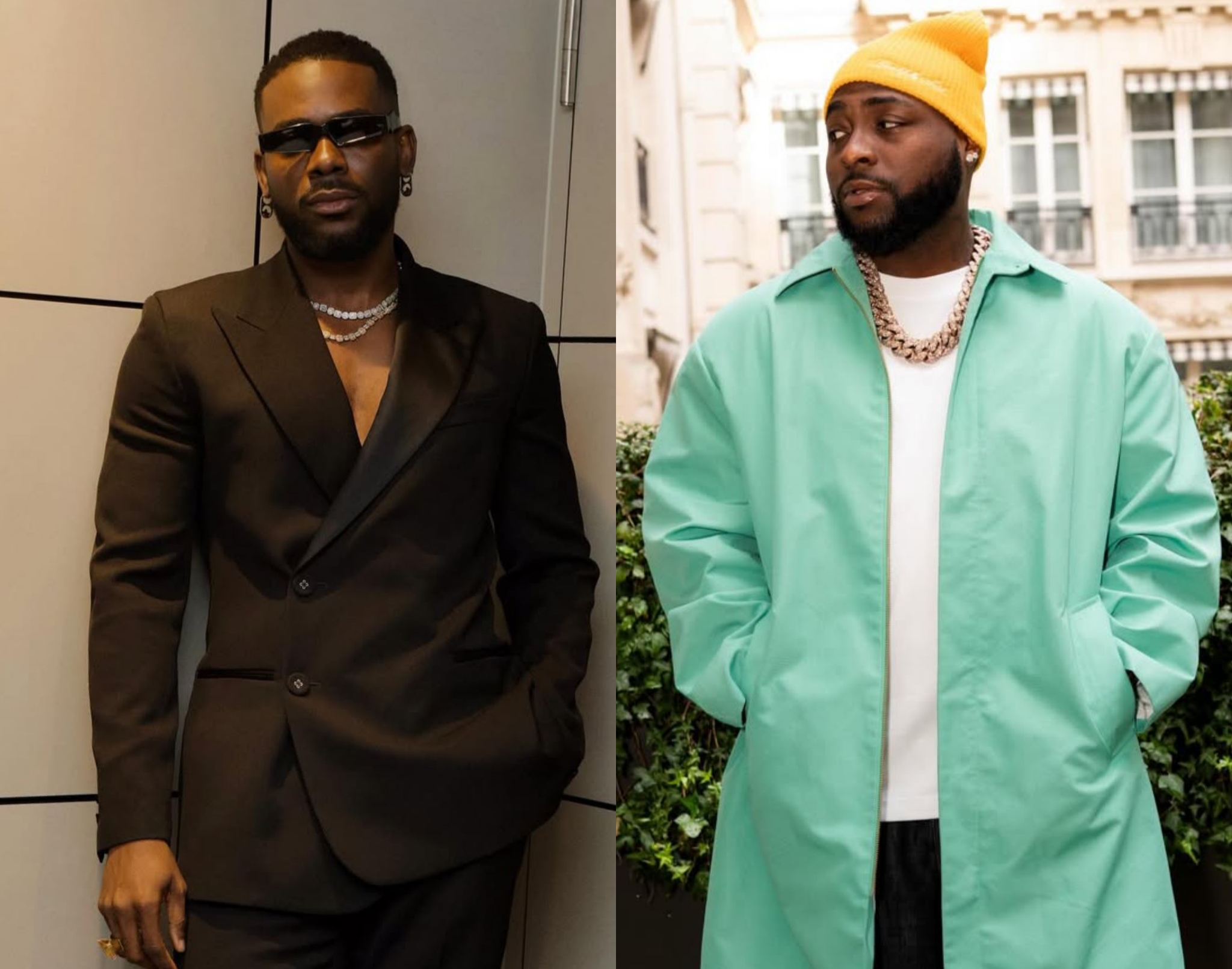
Adekunle Gold has released the official video for “Only God Can Save Me,” his collaboration with Davido, and the visual leans heavily on a structured storyline. The video presents a staged dating-show format where both artists are placed at the centre of a competitive environment designed to test attention, attraction, and personal discipline. That narrative structure gives the release a defined storyline and makes the viewing experience easy to follow even without focusing closely on the lyrics.
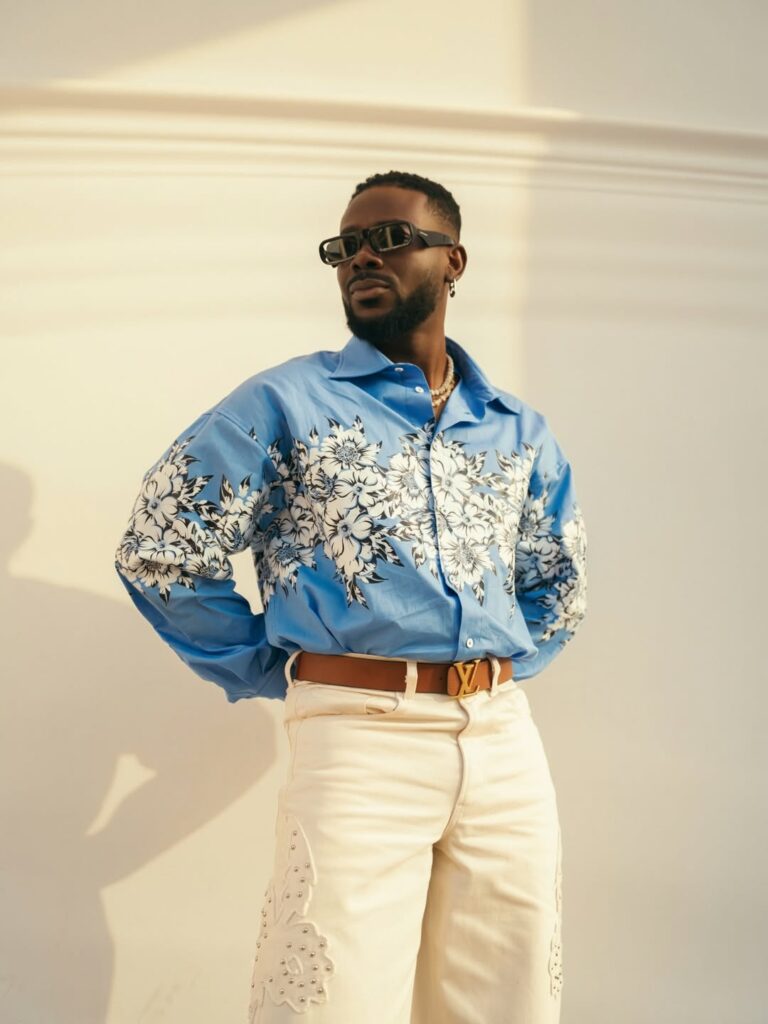
Adekunle Gold – Instagram
The concept is built around a fictional televised contest. A group of women compete for time and approval from the two stars, with judges, set lighting, and exaggerated reactions reinforcing the feel of a studio production. The setting mirrors the way celebrity romance is often packaged as entertainment. By placing themselves inside a mock competition, Adekunle Gold and Davido play exaggerated versions of public personas that fans already recognise. The structure keeps the pacing tight and allows the humour in the situation to carry the video.
Production design is a major driver of the visual appeal. The set uses bold colours, symmetrical staging, and controlled camera movement to maintain a game-show atmosphere from start to finish. Wardrobe styling is coordinated to match the artificial tone of the environment, separating the video from the street-style realism common in many Afropop visuals. Dance segments are brief and intentional, serving as transitions between scenes rather than standalone showcases.
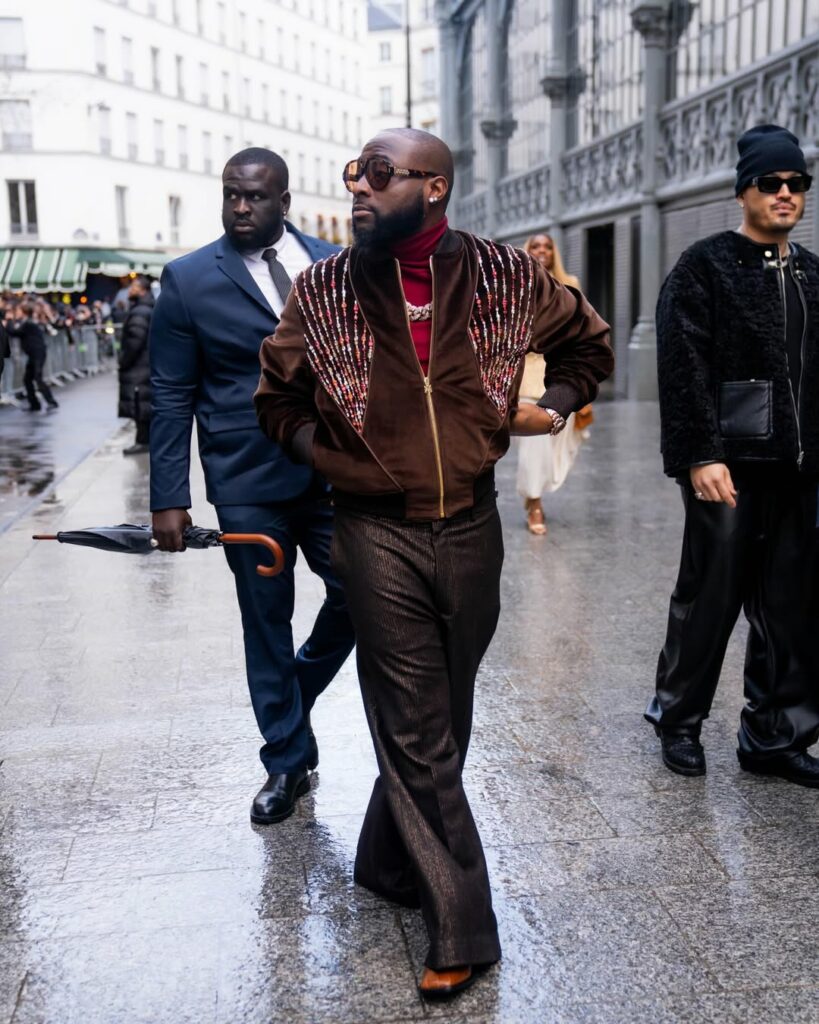
Davido – Instagram
On the audio side, the track pairs layered percussion with a steady Afropop groove that leaves space for vocal delivery. Adekunle Gold opens with a relaxed cadence that frames the theme as a personal confession about distraction and temptation. Davido follows with a more forceful entry that raises the energy without changing the song’s core rhythm. The contrast in their vocal textures keeps the collaboration balanced and prevents the record from feeling one-dimensional.
The chorus centres on the repeated line “only God can save me,” presented as an admission of limits rather than a religious statement. The lyrics acknowledge desire and ego in plain terms, connecting the theme of the song directly to the scenario shown on screen. Instead of separating the message from the visuals, the video reinforces the idea that constant attention can blur personal boundaries.
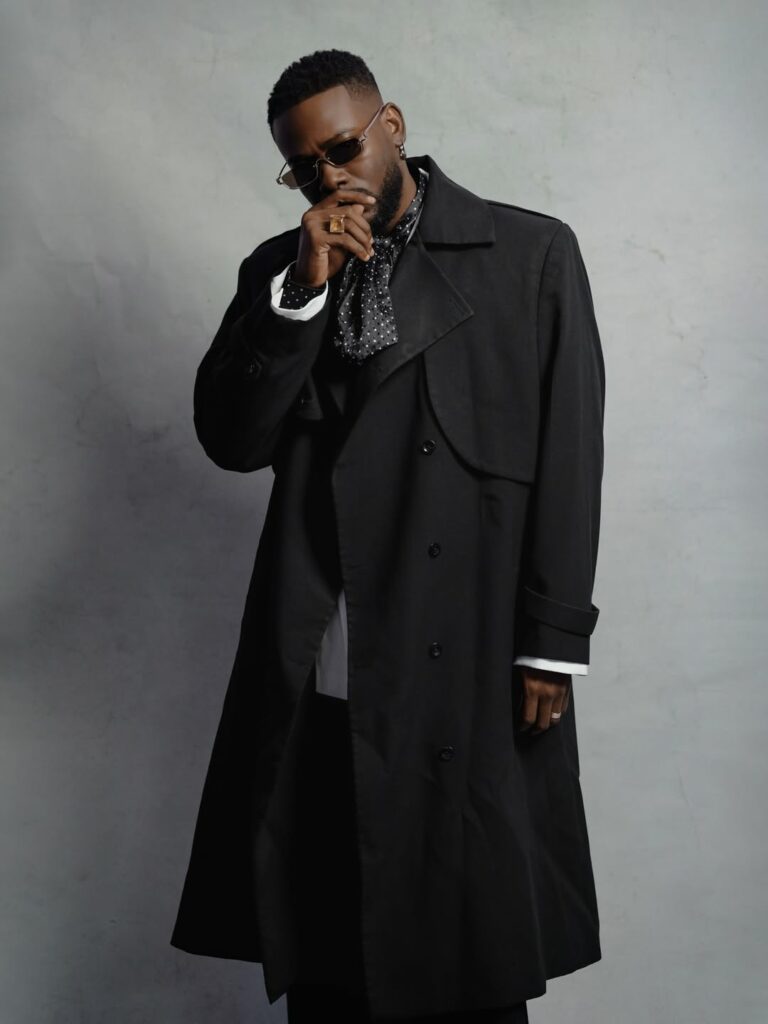
Adekunle Gold – Instagram
In the context of Adekunle Gold’s recent releases, the single continues his pattern of combining pop accessibility with references to everyday social behaviour. Bringing Davido onto the track broadens its reach and positions the collaboration as a meeting point between two major strands of contemporary Nigerian pop. Both artists use the concept to comment lightly on fame without stepping outside the entertainment format.
The final result is a video that treats celebrity as a staged performance and invites viewers to watch the exaggeration unfold. The controlled setting, consistent pacing, and clear theme give the release a recognisable identity. Unlike many recent Afropop videos that focus on luxury settings, this video centres on a staged dating-show concept, providing a memorable hook that keeps the visual tied closely to the song’s message.
-

 Celebrity Style5 months ago
Celebrity Style5 months agoMercy Aigbe Keeps it Sharp in Ivory Dress
-

 Celebrity Style5 months ago
Celebrity Style5 months agoBella Okagbue Puts a Spin on Feminine Suiting
-

 Fashion5 months ago
Fashion5 months agoTeminikan Experiments with Geometry in a Woven Mini
-

 Lagos Fashion Week4 months ago
Lagos Fashion Week4 months agoLagos Fashion Week’s Earthshot Prize Win Highlights a Changing Direction in African Fashion Production
-

 Celebrity Style4 months ago
Celebrity Style4 months agoDiadem Okojie Perfects Polka Dots
-

 Top Xclusiv4 months ago
Top Xclusiv4 months agoAnok Yai Named Model of the Year 2025 at the Fashion Awards
-

 Celebrity Style2 months ago
Celebrity Style2 months agoPantone’s 2026 Colour Cloud Trend Gets Uche Montana’s Seal of Approval
-

 Celebrity News4 months ago
Celebrity News4 months agoBurna Boy Commands the Spirit Tunnel on The Jennifer Hudson Show
-

 Movies5 months ago
Movies5 months agoTrailer Review for “Safari”
-

 Celebrity Style1 month ago
Celebrity Style1 month agoUzor Arukwe, Idia Aisien and Others at the Bridgerton Season 4 Premiere in South Africa

























